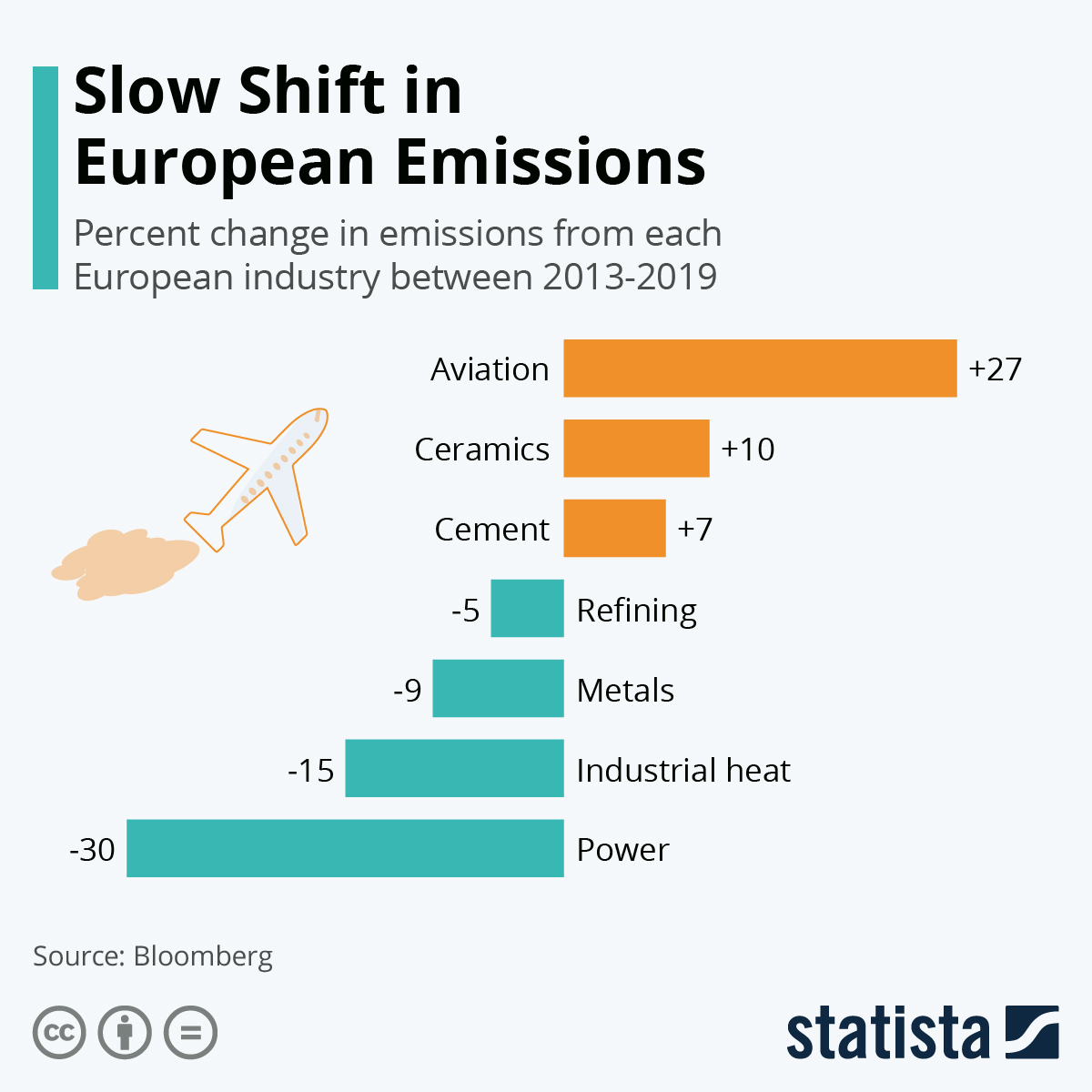The European Union has attempted to lead the world in clean energy production and divestments in fossil fuels over the coming decades. Data from Bloomberg shows how countries within the continent are seeing heightened prices associated with carbon-based fossil fuels, and how some industries are still polluting more than others.
According to data collected by Bloomberg, the top European industries of metals, industrial heat and power have successfully cut down on carbon emissions between 2013 and 2019. Power companies have cut back the most with a 30 percent reduction over the past seven years. Industrial heat companies were right behind with a total reduction of 15 percent.
Other industries in Europe, however, have actually increased carbon emission output between 2013 and 2019. These include industries related to cement, glass and ceramics production, which have seen an increase of between 2 percent to 10 percent in emissions. The largest culprit has been the aviation industry, which has grown in carbon emissions by a significant 27 percent.
To combat increased emissions in these industries and encourage more companies to continue toward cleaner production, Europe is slowly reducing free allowances of emissions permits for fossil fuels and watching prices consequentially go higher. New strategies to support Europe’s Green Deal include climate taxes on goods brought into EU countries, and ultimately, companies are being forced to actively plan out their carbon consumption in the coming years - forcing businesses to quickly accommodate cleaner forms of energy.





















